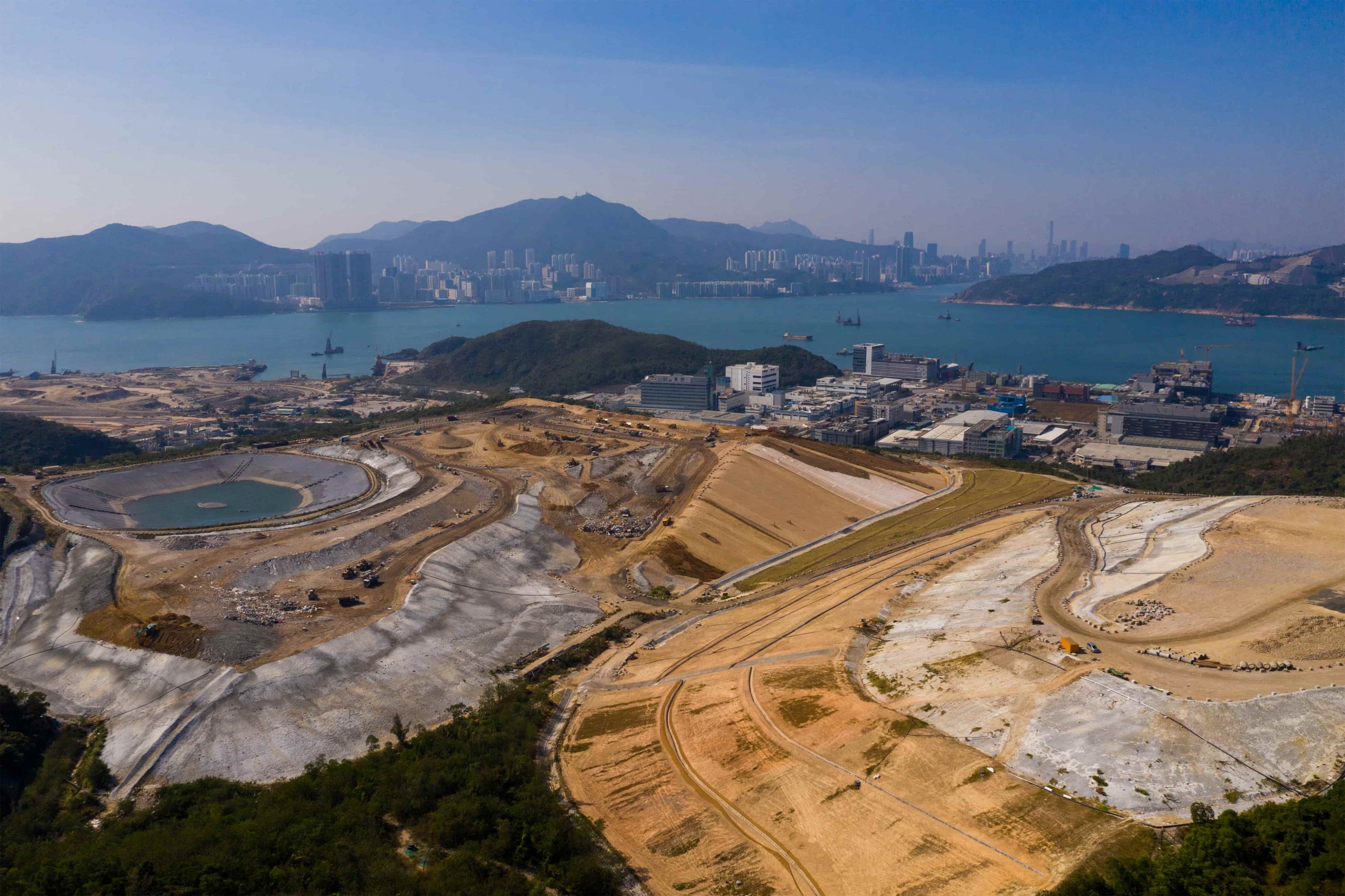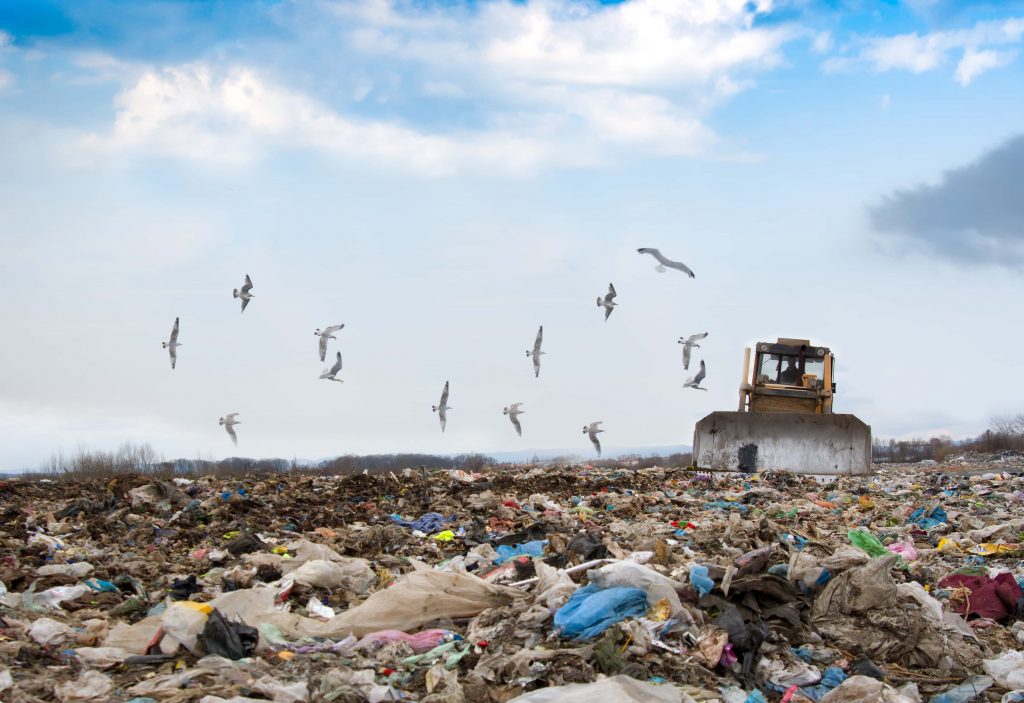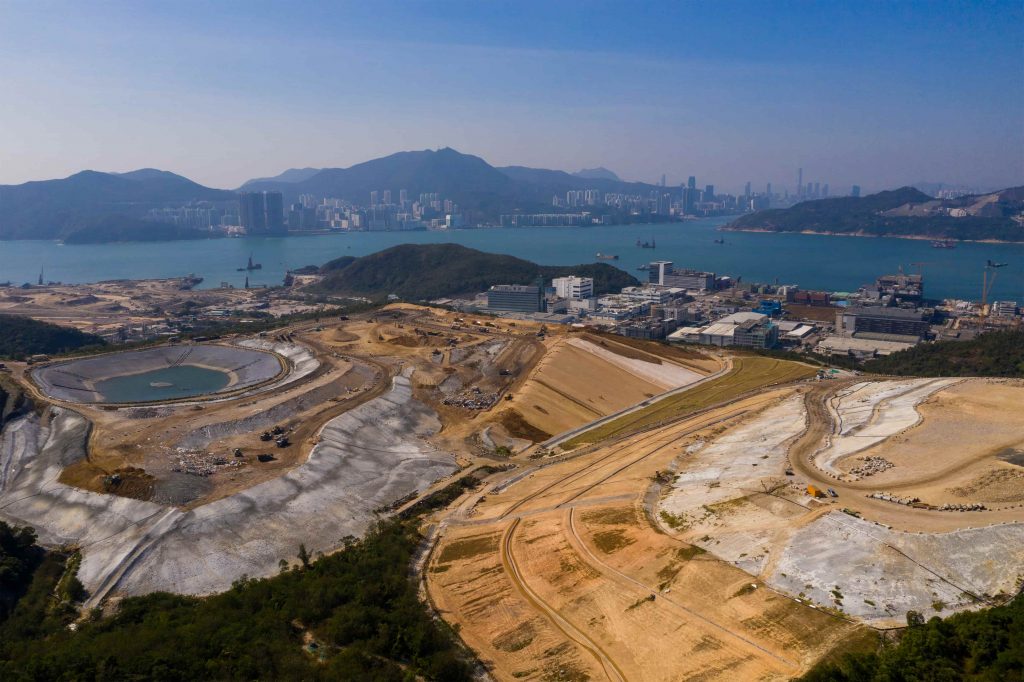Waste & material traceability solution for sustainable facilities

All of us produce waste every day, but have you ever thought about what happens to the waste that is created after the garbage or trash pickup? Surely, landfills come to our minds when we think about this. What is a landfill? It is an area for waste disposal to prevent our environment from pollution and health risks. It is one of the most used disposal methods of municipal solid waste management.
It is important to remember that these landfills are not open dumps since they have an engineered mechanism to decrease the environmental effect of waste. Landfills have to comply with regulations regarding their location, design, and operation. Also, these landfill processes are monitored very closely to control any sign of groundwater contamination and landfill gas.

Especially engineered landfills that need highly skilled operators and expert design can be considered good for environmental health. It will result in effective disposal if it is managed well. However, if landfill management is not done correctly again, it leads to environmental pollution.
Generally, there are three landfill types. Firstly, municipal solid waste (MSW) landfills are designed to hold household waste and some other non-hazardous wastes. These landfills can also use bioreactors. Bioreactor landfill technology relationship grows in the focus of sustainability.The second is industrial waste landfills designed to receive industrial and commercial waste. The third one is hazardous waste landfills that are used for the disposal of hazardous waste in a way that keeps our health and environment safe.
For sure, landfills also consist of some problems. One of the most common problems you hear is probably the gas release in landfills which can lead to environmental issues and extreme levels of greenhouse gas emissions. Here, too, there is a chance to turn the crisis into an opportunity. The key is to ask how to reduce methane emissions from landfills. Moreover, liquid releases can be counted as another problem in these areas that can contaminate underground waters. These liquids are needed to be captured by workers. Probably, all of us are asking the same question: Can we prevent all of these problems?
The answer is yes. Again here, technological developments and advanced engineering skills can save us. The common point of both problems is the release of liquids or gases, so this point must be prevented. The gas and liquids are needed to be captured and collected. Luckily, technology has led us to manage all these releases first, but in addition, we can produce electricity from the gases!
In modern landfills, we can see that the trash is buried in levels that are compacted and covered, and also, we can see a protected bottom to prevent contamination of groundwater. Moreover, 0.5 meters of soil should cover the waste to prevent animals from digging the waste.

Additionally, in modern and engineered landfills, there are many technological advancements regarding monitoring and tracking landfills. In these, a one-liner system can be observed at the bottom and on the sides, a leachate removal system for gas extraction and groundwater monitoring. Furthermore, a risk management system for assessing the risk can be seen to decide on the area where the landfill will be operated.
Another technology that is seen is bioreactors. This technology turns complex organic molecules such as papers, food, etc., into less toxic smaller compounds. Through the activity of bioreactors, we can see the production of biogases. These gases can also be managed by collecting them properly. We can observe gas collection systems in some landfill areas to generate electrical energy.
Collecting, reporting, and monitoring the information is crucial in all the mentioned processes. Transporting this waste to landfills and after the waste disposal process is highly complex and every day, we are generating more and more waste, making it more difficult to keep track of. To keep up with all this information and manage it well, we need the help of eco-friendly methods of waste management.
Management of the increasing waste in urban life is inevitable and local authorities are having many problems managing these wastes, especially in landfills. As Evreka, we care about our environment and produce advanced digitized solutions to reach a healthier environment and a better life for all. Keeping track of information and monitoring these landfills might give waste management hard times, but we are here for you! We are ready to offer best-in-industry solutions for reducing carbon emissions from landfills with advanced recycling and tracing technologies.
We are aware of landfill gas technology and potential opportunities. Our highly digitized solutions will help you to monitor these processes easily in one platform and will help you to provide a more efficient and effective waste management process. If you want to learn more contact with us!